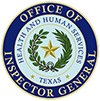Audit of family violence program contractor’s expenses finds potential waste of program funds
An audit of purchases by Women’s Protective Services of Lubbock uncovered opportunities for fraud, waste and abuse of taxpayer funds. The West Texas provider contracted with the Texas Health and Human Services (HHS) Family Violence Program, receiving more than $1 million annually, to assist battered women and children living near Lubbock.
During the review, auditors discovered potentially wasteful purchases. Of 76 reviewed items, mostly electronic devices, home appliances and furniture, more than 60% went unused, including 25 items that had not been opened in 12 months. Auditors also noted a lack of controls on the program’s purchasing practices that could lead to fraud. Of reviewed item purchases, 43% were received at a location other than Women’s Protective Services, including staff residences.
During the reviewed time frame, the facility paid $1,200 for installing HVAC equipment that had yet to be completed after more than 18 months. Staff also discarded a laptop computer worth $1,599 at a recycling center after failing to check if the device worked within the 30-day warranty window. Additionally, the program was reimbursed $2,879 for the purchase of a storage cabinet which was canceled and never received.
Auditors recommended that Women’s Protective Services needed to improve the certain purchasing process, specifically:
- Develop and define (a) a process to ensure all items purchased are received, (b) inventory processes for consumable items, and (c) inventory processes for non-consumable assets such as appliances and electronics.
- (a) Repay HHSC $2,879.96 for the item refunded and determine if there were additional instances of overstating expenses for purchases not completed, (b) work with HHSC to correct its reporting and repay unexpended grant funds, (c) strengthen processes and controls related to receiving, and (d) implement monitoring controls associated with financial processes if segregation of duties is not possible.
The report also showed the program properly maintained supporting records, including client receipts and payroll records for their staff. Specifically:
- All 210 salary transactions tested were accurate and supported.
- The amount recorded in the general ledger equaled the approved HHSC budget for all 16 employees tested.
- All 60 non-payroll expenses tested were allowable.
- All tested household items purchased under the Pandemic Economic Assistance fund were supported, allowable, and included documentation of client receipt.

